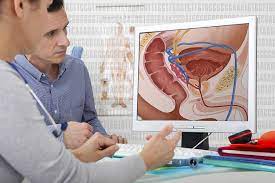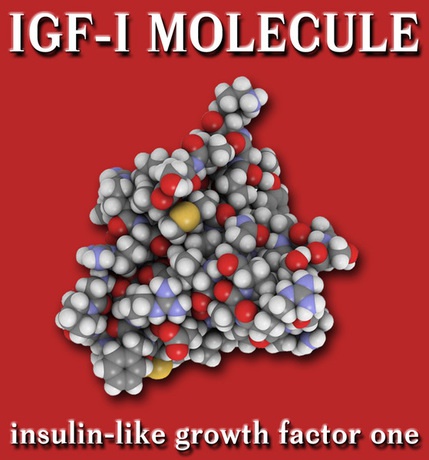How Does Testosterone Impact Prostate Health?
Video Link: https://vimeo.com/183549361
Video Download: Testosterone And Prostate Health
Video Stream: Testosterone And Prostate Health
Testosterone and Prostate Health
Testosterone is not Linked to Increased Risk of Prostate Cancer
Historically, many scientists have hypothesized that Testosterone contributes directly to the development of Prostate Cancer in correlation with age. There are even a minority of doctors who have utilized castration as a means to prevent Prostate Cancer.
New research suggests that the link between Testosterone and Prostate Cancer is weaker than once believed, and there is a significant chance that Testosterone has absolutely no link to the development of Prostate Cancer.
What we are learning now is that Testosterone is vitally essential for the optimal function of the Prostate.
Testosterone Levels Fade with Age
There is a significant problem, however. The older that we get, the less Testosterone that men produce. Generally, Testosterone Levels remain high beginning at puberty and extending to the late twenties. After this period of optimal hormone production, our bodies produce many vital hormones, including Testosterone and Human Growth Hormone, less efficiently.
including Testosterone and Human Growth Hormone, less efficiently.
Beginning in the thirties, Testosterone Levels start to drop at a slow and steady rate, hindering our health and preventing us from maintaining our health and vitality. Although medical professionals have long recognized that Testosterone Production drops with age, the mechanisms for that decline have been a mystery.
What Causes Testosterone Deficiency?
In recent years, however, scientists are starting to understand the mechanisms which cause Testosterone Secretion to decline more fully. Endocrinologists have discovered that a specific enzyme seems to be primarily responsible for Age-Related Testosterone Deficiency, known as 5-Alpha Reductase. As we age, our bodies produce too much of this hormone, limiting the body's ability to maintain healthy Testosterone Levels.
5-Alpha Reductase is a hormone that can deconstruct Testosterone, converting it into a derivative hormone known as Dihydrotestosterone. Increased levels of Dihydrotestosterone are associated with numerous medical afflictions that were once hypothesized to be the result of Testosterone, including cancer, hair loss, prostate enlargement, and bladder control issues.
In addition to these internal causes of Testosterone Deficiency, it appears that many chemicals also contribute to Testosterone Deficiency. These chemicals can limit Testosterone Production even at an early age when Testosterone Production is supposed to be at its peak. Because of particular chemical contaminations, adolescents are even at the risk of Testosterone Deficiency.
There is new evidence that specific Statin Drugs (used to treat abnormally high cholesterol) suppress the body's ability to produce Testosterone efficiently. Also, we are now learning that certain herbicides affect the body's ability to produce Testosterone. The most common of these is a chemical known as gly-phosphate, which has been linked to numerous other medical issues.
How to Combat Age-Related Testosterone Deficiency
As we discussed earlier, Testosterone levels naturally decline as a result of the aging process. There are numerous ways that you can slow down this Testosterone Decline and safeguard yourself deeper into your lifespan. The following are ways that you can help maintain healthier Testosterone Levels:
The Hormone Replacement Method
Hormone Replacement Therapy, under the advice and guidance of a medical professional, is an excellent way to treat Age-Related Testosterone Deficiency.
If you are experiencing any of the following symptoms, then you may be dealing with Testosterone Deficiency:
Reduced Libido and Disinterest in Sex
Inability to Produce or Maintain a Full Erection
Depression
Anxiety
Cognitive Issues Related to Short Term and Working Memory
Accumulation of Body Fat
Loss of Muscle Mass
Loss of Bone Mineral Density
A qualified physician can provide the blood tests necessary to diagnose Testosterone Deficiency properly. Once it has been determined that you are experiencing Low-T, there are multiple ways that you can treat your medical issue. The most direct way to treat Low-T is by taking supplemental Testosterone.
There are many forms of effective Testosterone Replacement Therapy, including Testosterone Creams, Testosterone Sprays, Testosterone Dermal Implants, and even Testosterone Injections. These forms of Testosterone Treatment supplement the body's production with Bio-Identical Testosterone to  help maintain a more optimal level of Hormone Balance, encouraging the body to perform in a higher and more efficient state.
help maintain a more optimal level of Hormone Balance, encouraging the body to perform in a higher and more efficient state.
Avoid Oral Testosterone
Although there are multiple effective ways to provide Testosterone Replacement, it is essential to note that taking Testosterone orally will either be minimally effective or completely ineffective. Testosterone is too complex to survive the digestive fluids of the stomach, and the Testosterone that you put in your mouth will not be the same as the amino acids absorbed into your system.
DHEA Hormone Replacement Therapy
There are other potential alternatives to Testosterone Replacement Therapy, especially if you are dealing with relatively minor levels of Testosterone Deficiency. One hormone that provides benefits for many people is known as DHEA.
DHEA is a Bio-Identical Hormone that is a direct precursor to naturally produced Testosterone. DHEA is released by the adrenal glands, which are located just above your kidneys. DHEA is responsible for the proper synthesis of a number of hormones, including Testosterone.
Healthy production of DHEA is heavily correlated with age. Before puberty, the adrenal glands release a minimal amount of this hormone. Still, as puberty occurs, the body begins to produce high levels of DHEA, which directly leads to an influx of Testosterone Production.
Production of DHEA peaks during the late teens and twenties and begins to fall sometime between the late twenties and early thirties.
The decline is gradual but becomes more significant the older you get. The adrenal glands are also responsible for producing other hormones, including Cortisone. Although Cortisone is a natural and necessary hormone, the body begins to produce it in greater and greater amounts throughout life.
Cortisol Prevents DHEA Production
The problem here is that DHEA and Cortisol are created from the same parts, and the more Cortisol that the Adrenal Glands produce, the less DHEA, and thus, the less Testosterone that is created. Cortisol and DHEA are synthesized using the substrate pregnenolone, and Cortisol production slowly hordes this hormone vital to Testosterone production.
Although the natural aging process increases Cortisol production, factors such as emotional stress, obesity, chronic pain, and even the over-consumption of gluten products can increase Cortisol levels unnecessarily.
Use DHEA Only with a Doctor's Permission
Although it is possible to purchase DHEA Over the Counter, it is essential that you only utilize DHEA under the recommendation of a physician. To maximize the benefits, you must have a responsible physician who monitors your hormone levels and recommends optimal hormone intake.
Although it is possible to take DHEA by mouth, ingestion still limits the effectiveness of the hormone.
How is DHEA Most Effectively Delivered?
DHEA is most effectively administered via the mucous membranes of the rectum or the vagina. It can help both sexes maintain healthy hormone production by providing the building blocks of Testosterone and Estrogen.
It can also be delivered via the skin, but applying a consistent dose is harder. Patients with significant Testosterone Deficiency will likely still benefit from direct Testosterone Hormone Replacement Therapy, but DHEA is also a valuable option for a specific subset of patients.
The Prostate Cancer-Testosterone Myth and Saw Palmetto
As men grow older, they become increasingly at risk of developing a disorder known as Prostate Hyperplasia. This means that the prostate begins to grow abnormally large. This disorder most notably affects men over sixty, and the risk continues to increase with age.
Although, in the past, it was hypothesized that Testosterone, Prostate Cancer, and Prostate Enlargement were linked, it appears in retrospect that this is not the case.
Rather than Testosterone, it seems that enhanced levels of Estrogen and DHT are responsible for these risks. Estrogen and DHT are created when Testosterone is maintained inappropriately by the body, causing it to break down into these alternative hormones.
There are two types of drugs that primarily treat Prostate Enlargement, and both of these treatments involve unhealthy and potentially dangerous side effects:
5-Alpha Reductase Inhibitors for Prostate Enlargement
The most commonly prescribed forms of this medication are Proscar and Avodart. These drugs work by limiting the conversion of Testosterone into DHT. Although this can lead to an increase in Testosterone Levels, it does nothing to prevent Testosterone from converting into Estradiol and other Estrogen compounds.
For this reason, these medications increase prostate cancer risk even though they effectively treat prostate enlargement.
Alpha-Blockers for Prostate Enlargement
Alpha Blockers treat the symptoms of prostate enlargement but do not solve the root causes. Alpha Blockers include Rapaflow, Cardura, Hytrin, and Flomax. These drugs work by helping the smooth muscles of the bladder and prostate relax, making urination easier.
Although they are very effective, they only hide the underlying issues related to Prostate Enlargement without treating the disorder itself.
Saw Palmetto for Prostate Enlargement and Healthy Testosterone Production
Rather than turn to these synthetic medications, an option for many patients is entirely natural: Saw Palmetto. More than one hundred studies have been  conducted regarding the efficacy of Saw Palmetto, and there is evidence that Saw Palmetto can relieve the symptoms of Prostate Enlargement without leading to adverse symptoms.
conducted regarding the efficacy of Saw Palmetto, and there is evidence that Saw Palmetto can relieve the symptoms of Prostate Enlargement without leading to adverse symptoms.
In addition, there is some evidence that Saw Palmetto Capsules can also reduce the risk of Prostate Cancer. Although, in the past, studies have provided mixed results regarding Saw Palmetto Capsules, there is substantial new evidence that the effectiveness of treatment depends upon the form of Saw Palmetto used as well as the way that it is administered.
Choose the Right Form of Saw Palmetto
Many supplements are manufactured using an ineffective plant formulation. When used effectively, Saw Palmetto can provide significant benefits. One physician tells us that for him, the most trusted form of Saw Palmetto is a form of Saw Palmetto Oil extracted using the Super-Critical Carbon Dioxide Extraction technique.
This form of Saw Palmetto will be an oil-colored deep green. It is also important to note that Saw Palmetto is soluble in fat rather than water, so it is absorbed most effectively when eaten with a food that contains fat, such as eggs.
Saw Palmetto and Astaxanthin
New research also shows that combining the Anti-Oxidant Astaxanthin with Saw Palmetto Oil can increase the benefits of both supplements. A study in 2009 showed that combining these two supplements had a cumulative effect, limiting the production of Estrogen and DHT while also boosting natural Testosterone Levels.
Natural sources of Astaxanthin include Krill Oil, Salmon, Rainbow Trout, and Shellfish. It is also present in many vegetables, including Red Peppers and Carrots.
In addition to combining these two supplements, you can also choose foods and supplements which are high in aromatase-inhibitors that help prevent Testosterone from converting into Estrogen. These foods include Grape Seed Extract, Nettles, and White Button Mushrooms.
A Healthy Prostate is Important to a Long and Healthy Life
If you are growing older and are concerned with your prostate health, use the information in this article to inform yourself and ask for the opinion of a qualified medical professional. Be proactive and do your part in avoiding prostate problems later in life!

- What Are Normal Testosterone Levels For Men And Women Throughout Life? [Last Updated On: February 14th, 2025] [Originally Added On: May 26th, 2020]
- Top Tips For Boosting Testosterone Naturally [Last Updated On: November 6th, 2024] [Originally Added On: May 27th, 2020]
- The Testosterone Factor [Last Updated On: December 23rd, 2024] [Originally Added On: May 28th, 2020]
- Testosterone Can Help Relieve The Menopause Symptom Of Hot Flashes [Last Updated On: February 14th, 2025] [Originally Added On: May 29th, 2020]
- How Does Low Testosterone Cause Infertility? [Last Updated On: February 8th, 2025] [Originally Added On: May 30th, 2020]
- The Benefits Of Testosterone Therapy For Prostate Cancer [Last Updated On: February 14th, 2025] [Originally Added On: May 31st, 2020]
- Is Testosterone Replacement A Valid Diabetes Treatment? [Last Updated On: February 15th, 2025] [Originally Added On: June 1st, 2020]
- Testosterone Shock Therapy May Be An Effective Prostate Cancer Treatment [Last Updated On: February 5th, 2025] [Originally Added On: June 2nd, 2020]
- Testosterone Replacement Therapy Is Safe For The Heart [Last Updated On: February 14th, 2025] [Originally Added On: June 3rd, 2020]
- Testosterone Replacement Therapy [Last Updated On: December 20th, 2024] [Originally Added On: June 4th, 2020]
- Testosterone Patches [Last Updated On: February 8th, 2025] [Originally Added On: June 5th, 2020]
- Testosterone Overview [Last Updated On: February 13th, 2025] [Originally Added On: June 6th, 2020]
- Testosterone Levels And Making Money [Last Updated On: October 19th, 2024] [Originally Added On: June 7th, 2020]
- Testosterone Enanthate [Last Updated On: October 18th, 2024] [Originally Added On: June 8th, 2020]
- Increased Awareness Of Low-t Helps Men Live Healthier Lives [Last Updated On: February 7th, 2025] [Originally Added On: June 9th, 2020]
- How Does Low-t Lead To Erectile Dysfunction? [Last Updated On: February 7th, 2025] [Originally Added On: June 10th, 2020]
- Testosterone Basics [Last Updated On: February 6th, 2025] [Originally Added On: June 11th, 2020]
- Testosterone And Other Sex Hormones Impact Asthma Response Dependent On Sex [Last Updated On: February 5th, 2025] [Originally Added On: June 13th, 2020]
- Recognizing Subtle Symptoms Of Testosterone Deficiency [Last Updated On: February 4th, 2025] [Originally Added On: June 15th, 2020]
- Testosterone Trivia [Last Updated On: February 4th, 2025] [Originally Added On: June 16th, 2020]
- The Health Benefits Of Testosterone And Sleep Are Interconnected [Last Updated On: February 3rd, 2025] [Originally Added On: June 17th, 2020]
- How Can I Restore My Testosterone Production Naturally? [Last Updated On: October 13th, 2024] [Originally Added On: June 18th, 2020]
- Low-t Quiz [Last Updated On: October 12th, 2024] [Originally Added On: June 19th, 2020]
- Low Testosterone Might Mean Poor Sleep Need Testosterone Hormone Injections [Last Updated On: October 11th, 2024] [Originally Added On: June 20th, 2020]
- Low Testosterone Contributes To Frailty With Age [Last Updated On: October 10th, 2024] [Originally Added On: June 21st, 2020]
- Low Testosterone Affects A Third Of Young Men With Type 2 Diabetes [Last Updated On: October 9th, 2024] [Originally Added On: June 22nd, 2020]
- Japanese Testosterone Study Proves Physical And Psychological Benefits [Last Updated On: October 8th, 2024] [Originally Added On: June 23rd, 2020]
- Intramuscular Injections Are Safer Procedures [Last Updated On: October 7th, 2024] [Originally Added On: June 24th, 2020]
- Injecting Testosterone (im) [Last Updated On: December 21st, 2024] [Originally Added On: June 25th, 2020]
- Injectable Testosterone And Testosterone Cream [Last Updated On: February 14th, 2025] [Originally Added On: June 26th, 2020]
- Indiana Jones Vs. Rambo (hgh Testosterone) [Last Updated On: October 6th, 2024] [Originally Added On: June 27th, 2020]
- How Much Does Testosterone Control Men's Behavior? [Last Updated On: October 5th, 2024] [Originally Added On: June 28th, 2020]
- Getting To The Bottom Of Low-t Under-reported Sources Of Testosterone Deficiency [Last Updated On: February 14th, 2025] [Originally Added On: June 29th, 2020]
- How To Manage And Overcome Testosterone Deficiency [Last Updated On: October 4th, 2024] [Originally Added On: June 30th, 2020]
- Clomiphene Low-testosterone Andropause Treatment [Last Updated On: February 3rd, 2025] [Originally Added On: July 1st, 2020]
- How Do Synthetic Chemicals Impact Testosterone Secretion? [Last Updated On: September 26th, 2024] [Originally Added On: July 2nd, 2020]
- Interest In Bio-identical Testosterone Is Skyrocketing [Last Updated On: October 3rd, 2024] [Originally Added On: July 3rd, 2020]
- Axiron Spray-application Testosterone Replacement Therapy [Last Updated On: October 2nd, 2024] [Originally Added On: July 4th, 2020]
- Andropause: Male Menopause [Last Updated On: October 24th, 2024] [Originally Added On: July 5th, 2020]
- Testosterone Deficiency Treatment Options [Last Updated On: September 29th, 2024] [Originally Added On: July 6th, 2020]
- The Facts About Testosterone Hrt For Low-t [Last Updated On: September 30th, 2024] [Originally Added On: July 7th, 2020]
- Misconceptions About Testosterone Replacement Therapy [Last Updated On: October 1st, 2024] [Originally Added On: July 8th, 2020]
- Testosterone Replacement Therapy Facts And Myths [Last Updated On: October 23rd, 2024] [Originally Added On: July 9th, 2020]
- Testosterone Injections For Testosterone Deficiency [Last Updated On: September 18th, 2022] [Originally Added On: July 10th, 2020]
- Testosterone Replacement Therapy May Help Aging Males Prevent Diabetes [Last Updated On: September 27th, 2024] [Originally Added On: July 11th, 2020]
- The Benefits Of Testosterone Replacement Therapy For Women [Last Updated On: September 25th, 2024] [Originally Added On: July 13th, 2020]
- How Can Testosterone Hrt Improve My Life Via Quality Low-t Treatments [Last Updated On: October 22nd, 2024] [Originally Added On: July 14th, 2020]
- Frequently Asked Questions About Testosterone [Last Updated On: September 28th, 2024] [Originally Added On: July 15th, 2020]
- Bio-identical Testosterone Cypionate Injections [Last Updated On: September 24th, 2024] [Originally Added On: July 16th, 2020]
- All About Testosterone Creams [Last Updated On: September 21st, 2024] [Originally Added On: July 17th, 2020]
- Low Testosterone Treatment Protocols [Last Updated On: July 1st, 2024] [Originally Added On: July 19th, 2020]
- Testosterone Deficiency Drains Your Energy [Last Updated On: February 13th, 2025] [Originally Added On: July 21st, 2020]
- What Is Testosterone? [Last Updated On: September 19th, 2024] [Originally Added On: July 23rd, 2020]
- Eleven Signs Of Testosterone Deficiency [Last Updated On: June 29th, 2024] [Originally Added On: July 26th, 2020]
- Hypertension-Associated Cardiovascular Risks Increase Due To Both Low-T And High Testosterone [Last Updated On: February 18th, 2025] [Originally Added On: April 22nd, 2021]
- Everything to Know About Androgel [Last Updated On: June 26th, 2024] [Originally Added On: July 8th, 2021]
- Kinds of Testosterone Therapy – Which Is Right for You? [Last Updated On: March 21st, 2025] [Originally Added On: August 28th, 2021]
- This Study Says High Protein Diet May Suppress Testosterone Levels [Last Updated On: February 20th, 2025] [Originally Added On: March 28th, 2022]
- Testosterone and Estrogen Deficiency Associated With Increased Risk of Rotator Cuff Surgery [Last Updated On: February 14th, 2025] [Originally Added On: April 26th, 2022]
- Low Testosterone Accelerates Aging [Last Updated On: March 20th, 2025] [Originally Added On: May 3rd, 2022]
- Low Testosterone Endangers Your Health [Last Updated On: February 14th, 2025] [Originally Added On: May 14th, 2022]
- Testosterone Helps Modulate Immune Activity in the Digestive System [Last Updated On: February 14th, 2025] [Originally Added On: May 18th, 2022]
- Did you know: Testosterone treats depression! [Last Updated On: December 28th, 2024] [Originally Added On: May 19th, 2022]
- Benefits of Fenugreek – Boost Testosterone and More [Last Updated On: February 14th, 2025] [Originally Added On: May 23rd, 2022]
- Testicle Tanning: What is Tucker Carlson Talking About? [Last Updated On: July 17th, 2024] [Originally Added On: June 3rd, 2022]
- Using Testosterone to Combat Memory Issues in Diabetics [Last Updated On: February 14th, 2025] [Originally Added On: August 16th, 2022]
- About 40% of Men Have Low-T – and it Doubles the Risk of Severe COVID [Last Updated On: February 25th, 2025] [Originally Added On: September 21st, 2022]
- The Foods To Boost Your Testosterone…And The Foods To Avoid [Last Updated On: December 27th, 2024] [Originally Added On: September 30th, 2022]
- Tlando Testosterone: An Innovative Oral Therapy for Low-T [Last Updated On: December 27th, 2024] [Originally Added On: October 1st, 2022]
- Testosterone Replacement Therapy (TRT) Explained [Last Updated On: July 9th, 2024] [Originally Added On: October 12th, 2022]
- Examining The Link Between Testosterone and Employability [Last Updated On: February 18th, 2025] [Originally Added On: November 8th, 2022]
- Standard Measure of Low Testosterone Doesn't Apply to Young Men [Last Updated On: March 12th, 2025] [Originally Added On: November 8th, 2022]
- Surprising Things that Cause Men’s Crashing Testosterone [Last Updated On: March 17th, 2025] [Originally Added On: January 5th, 2023]
- Understanding the Correlation between Testosterone Levels and Job Performance [Last Updated On: February 9th, 2025] [Originally Added On: February 9th, 2025]
- Link between Low Testosterone and Severe COVID Symptoms in Men [Last Updated On: February 12th, 2025] [Originally Added On: February 12th, 2025]
- The Good Job Grip: Is Testosterone the Key? [Last Updated On: February 13th, 2025] [Originally Added On: February 13th, 2025]
- Importance of Nutritional Balance in a Healthy Diet [Last Updated On: February 14th, 2025] [Originally Added On: February 14th, 2025]
- Invigorating Power of the Fenugreek Plant: A Natural Testosterone Energizer and More [Last Updated On: February 14th, 2025] [Originally Added On: February 14th, 2025]
- Unlocking the Testosterone Treasure: A Panacea for Cognitive Woes in Diabetic Patients [Last Updated On: February 14th, 2025] [Originally Added On: February 14th, 2025]
Word Count: 1817







